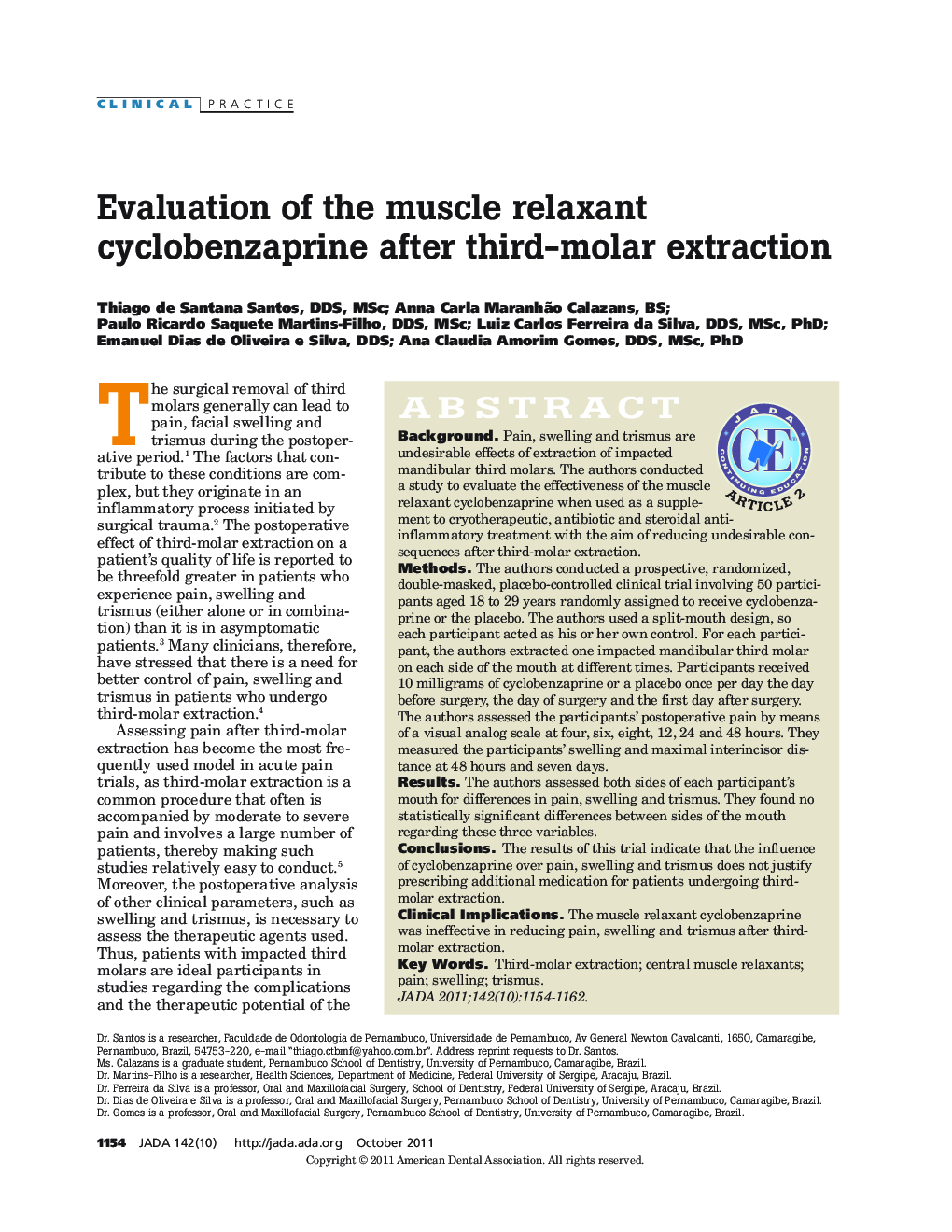| Article ID | Journal | Published Year | Pages | File Type |
|---|---|---|---|---|
| 3137983 | The Journal of the American Dental Association | 2011 | 9 Pages |
ABSTRACTBackgroundPain, swelling and trismus are undesirable effects of extraction of impacted mandibular third molars. The authors conducted a study to evaluate the effectiveness of the muscle relaxant cyclobenzaprine when used as a supplement to cryotherapeutic, antibiotic and steroidal anti-inflammatory treatment with the aim of reducing undesirable consequences after third-molar extraction.MethodsThe authors conducted a prospective, randomized, double-masked, placebo-controlled clinical trial involving 50 participants aged 18 to 29 years randomly assigned to receive cyclobenzaprine or the placebo. The authors used a split-mouth design, so each participant acted as his or her own control. For each participant, the authors extracted one impacted mandibular third molar on each side of the mouth at different times. Participants received 10 milligrams of cyclobenzaprine or a placebo once per day the day before surgery, the day of surgery and the first day after surgery. The authors assessed the participants' postoperative pain by means of a visual analog scale at four, six, eight, 12, 24 and 48 hours. They measured the participants' swelling and maximal interincisor distance at 48 hours and seven days.ResultsThe authors assessed both sides of each participant's mouth for differences in pain, swelling and trismus. They found no statistically significant differences between sides of the mouth regarding these three variables.ConclusionsThe results of this trial indicate that the influence of cyclobenzaprine over pain, swelling and trismus does not justify prescribing additional medication for patients undergoing third-molar extraction.Clinical ImplicationsThe muscle relaxant cyclobenzaprine was ineffective in reducing pain, swelling and trismus after third-molar extraction.
